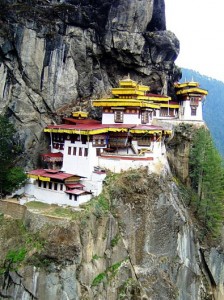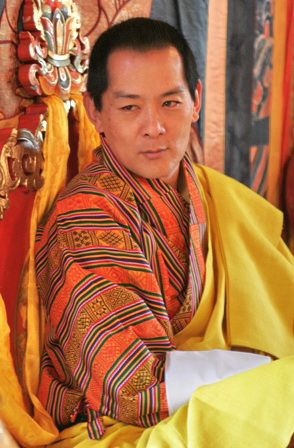Not everything that can be counted counts, and not everything that counts can be counted.
—Albert Einstein
At a recent conference I had the opportunity to learn about the Himalayan nation of Bhutan. Most of us had not heard of this country, but we should have, because they have done something that is reminiscent of the Broadway Musical “Camelot,” or possibly “Brigadoon.” Their King introduced a philosophy of living that is intended to shape all of the government’s activities. According to Mr. Kuenga Tshering, Director of the National Statistics Bureau of Bhutan, Gross National Happiness (GNH) was promulgated as Bhutan’s philosophy of economic and social development by the Fourth King of Bhutan as soon as he came to the throne in 1972.
The reason I’m writing about this is because I believe it is an amazing idea, a wonderful goal, and a step toward embracing idealism. Many of you have heard my thoughts on change, and know that I do not believe that there is only one route to follow on this journey through life.
The Bhutanese philosophy of “living” refers to a set of social and economic interventions that evaluate societal change in terms of the collective happiness of people. Further, these measures are also applied to the creation of policies that are aimed at that objective. Premised on the belief that all human beings aspire to happiness in one way or another, the concept promotes collective happiness of the society as the ultimate goal of development. Now that would be a political platform!
The philosophy of Gross National Happiness considers economic growth as one of the means towards achieving happiness, but it also offers a holistic paradigm within which the mind receives equal attention. While GNH recognizes the importance of individual happiness, it emphasizes that happiness must be realized as a collective or societal goal and not be defined as an individualized or competitive good.
The philosophy should also not cause misery to future generations, other societies, or to other beings, and it is important to the government of Bhutan that the efforts of this philosophy be distributed evenly across all sections of the society.
They work at strengthening the institutions of family and community; the spirit of voluntarism, tolerance and cooperation; the virtues of compassion, altruism, honor and dignity, all of whose active promotion may be a contributing factor to Bhutan’s low crime rate.
Culture also provides a framework where an individual’s or society’s psychological and emotional needs are addressed. By preserving local, regional, and national festivals, the government attends to these needs and provides a forum for maintaining social networks and promoting the conviviality of public culture.
Bhutan treasures the extended family network as the most sustainable form of social safety net. Aware of the possibilities of family disintegration or nuclearization, the government makes conscious efforts to revive and nourish the traditions and practices that bond families and keep communities resilient and thriving.
Their environmental policy is predicated on the perspective that human beings and nature not only live symbiotically but are inseparable from each other. According to this perspective, nature is a partner in existence; a provider of sustenance, comfort and beauty.
Environmental preservation, therefore, is a way of life in Bhutan. Currently, 72% of the country’s area is under forest cover, 26% of the area is declared as protected areas, and the state has decreed to maintain 60% of its area under forest cover for all times to come. Environmental cost is an essential ingredient of evaluating new development projects in Bhutan.
Finally, Bhutan launched parliamentary democracy 2008, becoming the youngest democratic country in the world. All this was initiated by the country’s leader – His Majesty, King Jigme Singye Wangchuck, thus fostering people’s capacity to make choices.
Well, we have generally been making choices as a country for some time now that generally do not embrace nature, family, our fellow man, or the environment. On a recent boat trip up the Caloosahatchee River, I expressed a dream, namely that mankind would embrace a philosophy of “National Happiness.”
Now wouldn’t that ROCK?









